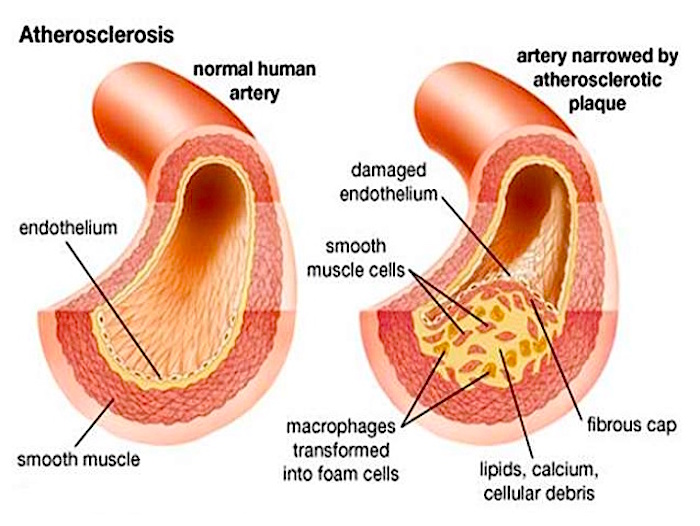 A commonly prescribed antidepressant caused up to a six-fold increase in atherosclerosis plaque in the coronary arteries of non-human primates, according to a study by researchers at Wake Forest Baptist Medical Center. Coronary artery atherosclerosis is the primary cause of heart attacks. The study is published in the current online issue of the journal Psychosomatic Medicine.
A commonly prescribed antidepressant caused up to a six-fold increase in atherosclerosis plaque in the coronary arteries of non-human primates, according to a study by researchers at Wake Forest Baptist Medical Center. Coronary artery atherosclerosis is the primary cause of heart attacks. The study is published in the current online issue of the journal Psychosomatic Medicine.
“The medical community has known for years that depression is closely associated with heart disease, but we didn’t know if treating it would reduce the heart disease risk,” said Carol Shively, Ph.D., professor of pathology/comparative medicine at Wake Forest Baptist and lead author of the study.
In the study, 42 middle-aged female monkeys were fed a Western-like diet containing fat and cholesterol for 18 months. During this pre-treatment phase, depressive behavior in the animals was recorded.
Female animals were chosen for the study because coronary heart disease is the leading cause of death in women in the United States, and depressive disorders are twice as likely in women as in men.
The animals were then randomly assigned to receive a commonly prescribed antidepressant, a selective serotonin reuptake inhibitor (SSRI) marketed under the brand name Zoloft, or a placebo once a day for 18 months. The antidepressant was given in a dose comparable to that given to patients.
The monkeys that received the SSRI developed three times the amount of atherosclerosis in their coronary arteries as monkeys given the placebo. In the depressed animals, the amount was even higher – almost six times greater in the SSRI-treated animals than in those given the placebo.
“Our findings suggest that long-term treatment with this drug promotes coronary artery atherosclerosis in non-human primates,” Shively said. “This may be clinically significant for people because almost a quarter of middle-aged women in the United States take antidepressants, the most prescribed of which are SSRIs.”
Shively added that although more research is needed, doctors may want to keep these findings in mind when they are prescribing antidepressants. Previous studies have shown that exercise and counseling may be as effective as SSRIs in treating depression for many people.
Source: Shively, Carol A. PhD; Register, Thomas C. PhD; Appt, Susan E. DVM; Clarkson, Thomas B. DVM. Effects of Long-Term Sertraline Treatment and Depression on Coronary Artery Atherosclerosis in Premenopausal Female Primates. Psychosomatic Medicine, April 2015 DOI: 10.1097/PSY.0000000000000163














